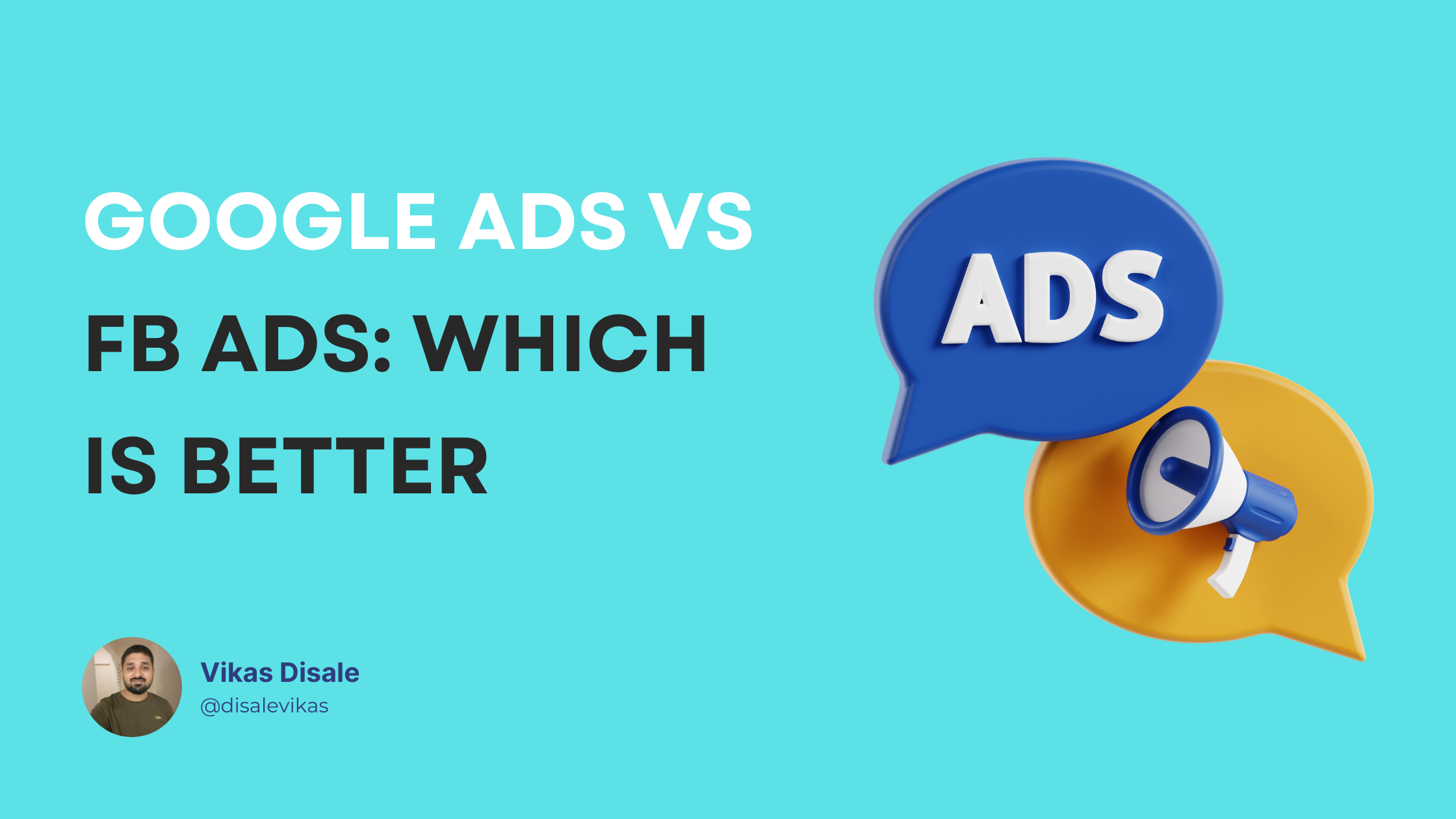Google Ads and Facebook Ads are two of the most popular advertising platforms on the internet, each with its own strengths and weaknesses.
The best platform for your business depends on your specific goals, target audience, and budget.
Google Ads
- Ideal for: Businesses looking to drive website traffic, generate leads, or increase sales.
- How it works: Google Ads uses a pay-per-click (PPC) model, where you only pay when someone clicks on your ad. Ads appear on Google Search results pages and on the Google Display Network.
- Strengths:
- Highly targeted: You can target users based on their search terms, location, demographics, and interests.
- Direct results: Users who click on your ad are typically ready to take action, such as making a purchase or filling out a contact form.
Advantages of using Google Ads
- Targeted Reach: Ads appear to users based on keywords, demographics, location, and more.
- Cost Control: Set budgets and only pay when users click on your ads (Pay-Per-Click).
- Measurable Results: Track performance with detailed analytics and conversion tracking.
- Fast Results: Quickly drive traffic and leads compared to organic methods.
- Ad Customization: Create tailored ads using text, images, video, and extensions.
- Remarketing: Re-engage users who have visited your website.
- Wide Audience: Reach users across Google Search, Display Network, YouTube, and Gmail.
- Local & Global Reach: Target specific locations or a worldwide audience.
- Mobile Optimization: Reach users on mobile devices effectively.
- Flexible Ad Formats: Choose from search ads, display ads, video ads, and more.
These advantages make Google Ads a powerful tool for driving traffic, leads, and sales.
Facebook Ads
- Ideal for: Businesses looking to build brand awareness, engage with their audience, or target specific demographics.
- How it works: Facebook Ads use a variety of ad formats, including images, videos, and carousel ads. You can target users based on their interests, demographics, behaviors, and connections.
- Strengths:
- Vast reach: Facebook has a massive user base, allowing you to reach a wide audience.
- Engagement: Facebook is a social platform, making it easier to engage with your audience and build relationships.
Advantages of using Facebook Ads
- Precise Targeting: Target users by demographics, interests, behaviors, and location.
- Wide Reach: Access Facebook’s massive global user base for brand visibility.
- Cost-Effective: Flexible budgeting options for both small and large businesses.
- Variety of Ad Formats: Use images, videos, carousels, and stories to engage users.
- Advanced Analytics: Track ad performance with detailed insights and reports.
- Remarketing: Retarget users who have interacted with your website or ads.
- Lookalike Audiences: Reach new potential customers similar to your existing audience.
- Mobile-Friendly: Highly optimized for mobile devices to reach users on the go.
- Engagement Opportunities: Boost brand awareness through likes, comments, and shares.
- Instagram Integration: Run ads across both Facebook and Instagram platforms.
These benefits make Facebook Ads an effective way to build brand awareness, generate leads, and drive sales.
Which Platform is Better for You?
The best platform for your business depends on your specific goals and target audience. Here are some factors to consider:
- Your goals: If your goal is to drive website traffic or generate leads, Google Ads may be a better choice. If your goal is to build brand awareness or engage with your audience, Facebook Ads may be more effective.
- Your target audience: If your target audience is actively searching for products or services related to your business, Google Ads is likely to be more effective. If your target audience is already interested in your brand or industry, Facebook Ads can help you reach them.
- Your budget: Both platforms offer a variety of pricing options, so it’s important to consider your budget when making a decision.
In many cases, a combination of Google Ads and Facebook Ads can be the most effective strategy. By using both platforms, you can reach a wider audience and achieve your marketing goals.
Would you like to explore specific use cases or delve deeper into the features of either platform?
Conclusion
Both Google Ads and Facebook Ads offer unique advantages that make them powerful tools for businesses of all sizes. Google Ads excels in intent-based targeting, offering immediate visibility to users searching for specific products or services.
Meanwhile, Facebook Ads leverages precise audience targeting, engaging users based on their interests and behaviors.
By using both platforms strategically, businesses can maximize their reach, drive conversions, and achieve their marketing goals effectively.
Vikas Disale is Digital Marketer and practicing SEO, Social Media, Paid Ads since 2011. Vikas like to share his knowledge via Podcast, YouTube videos.
